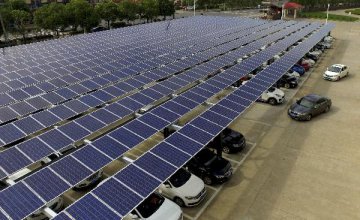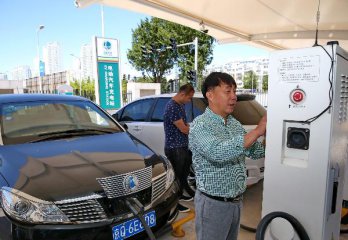
Modernizing old infrastructure, balancing the energy mix and moving towards interconnectivity in the region are common goals of the Central and Eastern European (CEE) countries grouped in the "16+1" cooperation format, top officials said Thursday.
Representatives at the "16+1" ministerial conference on energy welcomed China's interest in CEE's energy sector and expressed the need to obtain financing, eventually from Chinese banks or by including energy projects into the Belt and Road Initiative.
"Energy isn't a national affair anymore, is a regional business. This is why we have to act together. With financial support of projects from China, we can change the future of energy in the region," said Serbian Minister of Energy Aleksandar Antic.
On its side, China is willing to learn more about the needs and to clarify the projects advanced by CEE partners, said Nur Bekri, vice chairman of China's National Development and Reform Commission, and director of the National Energy Administration.
"In this respect, there is need for studies, for establishing creative think tanks and for strengthening strategic cooperation," Nur added.
The region's countries resuscitated plans to enhance their nuclear power plants in the coming years, a strategic move which reflects the need to reduce carbon dioxide emissions and diversify production.
At the 16+1 Energy Fair held together with the conference, Romania's Nuclearelelctrica company stand was facing that of China General Nuclear Power Corporation (CGN), a sign of the cooperation between the two partners in the 7.2 billion euro (8.36 billion U.S. dollars) nuclear project for construction of two new units at the Cernavoda nuclear power plant in Romania.
Renewable energy is high on the agenda of CEE countries, which are hoping to cooperate with Chinese companies in smaller projects.
Balkan countries are focusing on clean energy, as they need to recalibrate the energy balance. "Smart grids are a sector of interest into the 16+1 group and we are looking for investments into projects that address properly the issue of decarbonizing energy in the future. Clean energy is in the center of preoccupation of Slovenia," said Slovenia's Minister of Infrastructure Peter Gaspersic.
Albania is planning to develop solar and wind farms with Chinese know-how, said Deputy Minister of Energy and Infrastructure Dorina Cinari.
Croatia's commitment to reduce pollution and enhance the clean energy is looking for Chinese investments into geothermal energy projects, added Marijan Krpan, head of energy sector in the Ministry of Environment and Energy.
"We see a potential in cooperation with China's companies in the construction of solar and geothermal power plants," said Mile Vasic, the Bosnian Ambassador to Romania.
Hydro power plants are the most efficient investments in clean energy, but is an expensive exercise, and should be attentively evaluated, Dorin Badea, president of Hidroelectrica, told Xinhua.
However, the modernization of coal plants is also high on the regional agenda. "We are partners with China Huadian Engineering for developing a thermoelectric project in Rovinari. We believe that the investment in new technologies will provide cleaner coal energy," Sorin Boza, board member of the Oltenia Energy Complex, said.
Serbia's minister of energy Antic said long-term energy projects are worth the effort. "I invite other countries to cooperate with China's companies because they are really good organizers and they deliver excellent results," he said.





















Latest comments